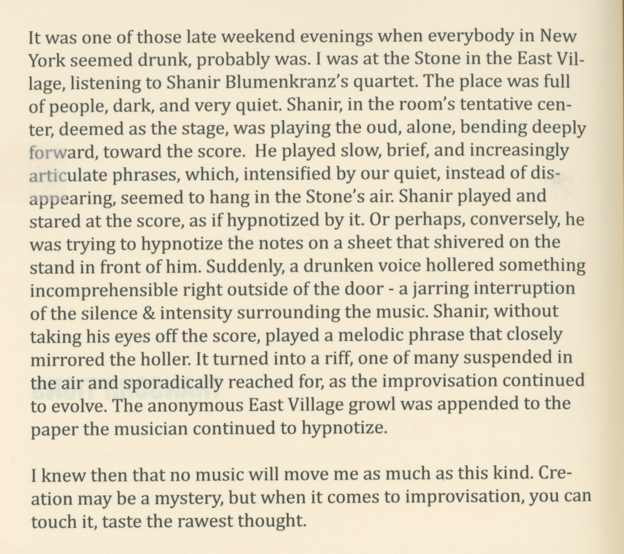Mirror the holler
Jake Marmer's new book, 'Cosmic Diaspora'

Jake Marmer (in his new book, Cosmic Diaspora) tells us a story about his realization that art in performance must permit and include intrusions. This statement is a preface to a section of poems that are verbal score-like “transcriptions” of music he’s never heard but imagines, in some cases. In others, the poems are the effects of writings made while the writer listened to live improvised music. But again, also while he was “thinking about music's reverberations.” And what, we might ask, is the distinction between those states? That’s the point. Marmer quotes Baraka in this prefatory statement: “Thought has a self. That self is music.” One bit of such self-expression is in Transcription #22 (p. 65): “not sound but sound’s / peel / a vector / trumpet’s footprint.” On the bottom of that printed page in the new book, one finds a QR code. Hold up the phone’s camera to it and get taken to a YouTube clip recording one of Marmer’s performances of the poem. Now back to the “holler” from outside. It reminds me of contemplations of the poem’s externality, such as Stevens’s late theory poem, “Not Ideas about the Thing but the Thing Itself.” Did that “scrawny cry” come from outside? Is it real? Is it realer when it becomes part of the poem? For Stevens the open-minded liminal moment was early dawn waking in the late winter. We all know that disorienting but productive liminality. But for Marmer the state comes when music is being invented. “Your answer,” he notes in Transcription #29, “today’s shape of it, / may end up as the thing.” This is the New Thing, as the free jazz people dubbed it — and, surely, Marmer is influenced greatly by that moment.